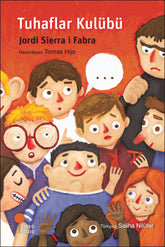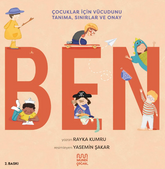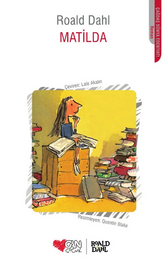CAN CHILDREN DO PHILOSOPHY?
by
Mavi Gezegen
19 Apr 2024
P4C, which stands for 'Philosophy for Children and Communities', is a pedagogy method that helps develop thinking, questioning and reasoning skills. The founder of philosophy pedagogy for children, Matthew Lipman, explains the purpose of the P4C method as follows: "It is not to turn children into philosophers or decision-makers. It is to help them become more thoughtful, reflective, understanding and rational individuals." Dr. Thomas Jackson also recommends that philosophy practices with children be taught regularly from pre-school onwards.
This educational model was also approved by UNESCO in 2007. In the 1990s, German philosopher and educator Karin Murris began working with Lipman. As a result of her work, Murris made philosophy applicable to preschool children.
WHAT IS THE P4C METHOD?
In the P4C method, a community of inquiry is created. P4C applications are carried out by an expert trainer. The trainer is in the role of a facilitator who guides these applications. During the investigation, children are directed to express their thoughts through questions and to listen to each other. For example; philosophical concepts such as beauty, justice, love, truth, etc. are discussed under the guidance of an adult, based on a story, poem, a section from an animation, or a work of art under the name of stimulus. The questions asked around this stimulus, which has a philosophical background, prompt the community to think.
WHY IS PHILOSOPHY IMPORTANT FOR CHILDREN?
Provides logical reasoning
Keeps the innate sense of curiosity alive
Helps to understand concepts by questioning them
They become part of an active thinking community rather than passive listeners.
In this educational environment, knowledge is not transferred directly to children (communities) by the authority. An environment is provided where children can express themselves freely. Under the guidance of the facilitator, the child is encouraged to question, listen and express ideas.
In a free and caring environment, children learn how to listen to other points of view, and experience how to respond respectfully and critically to different views or ideas.
WHAT ARE THE GAINS?
The 4Cs of the P4C application stand for:
*Critical
*Creative
*Caring
*It consists of concepts aimed at collaborative thinking.
It develops reasoning, hypothetical thinking, and abstraction skills.
It supports communication and provides a culture of discussion.
Improves solution generation methods
Listening to others with respect contributes to their ability to express themselves.
It creates the habit of critical thinking at an early age.
The inquiring individual becomes a part of the non-rote inquiring system.
Studies show that in groups that apply P4C regularly and continuously, the concentration, patience, empathy, self-confidence, self-esteem and awareness of the individuals who investigate improve.
This educational model was also approved by UNESCO in 2007. In the 1990s, German philosopher and educator Karin Murris began working with Lipman. As a result of her work, Murris made philosophy applicable to preschool children.
WHAT IS THE P4C METHOD?
In the P4C method, a community of inquiry is created. P4C applications are carried out by an expert trainer. The trainer is in the role of a facilitator who guides these applications. During the investigation, children are directed to express their thoughts through questions and to listen to each other. For example; philosophical concepts such as beauty, justice, love, truth, etc. are discussed under the guidance of an adult, based on a story, poem, a section from an animation, or a work of art under the name of stimulus. The questions asked around this stimulus, which has a philosophical background, prompt the community to think.
WHY IS PHILOSOPHY IMPORTANT FOR CHILDREN?
Provides logical reasoning
Keeps the innate sense of curiosity alive
Helps to understand concepts by questioning them
They become part of an active thinking community rather than passive listeners.
In this educational environment, knowledge is not transferred directly to children (communities) by the authority. An environment is provided where children can express themselves freely. Under the guidance of the facilitator, the child is encouraged to question, listen and express ideas.
In a free and caring environment, children learn how to listen to other points of view, and experience how to respond respectfully and critically to different views or ideas.
WHAT ARE THE GAINS?
The 4Cs of the P4C application stand for:
*Critical
*Creative
*Caring
*It consists of concepts aimed at collaborative thinking.
It develops reasoning, hypothetical thinking, and abstraction skills.
It supports communication and provides a culture of discussion.
Improves solution generation methods
Listening to others with respect contributes to their ability to express themselves.
It creates the habit of critical thinking at an early age.
The inquiring individual becomes a part of the non-rote inquiring system.
Studies show that in groups that apply P4C regularly and continuously, the concentration, patience, empathy, self-confidence, self-esteem and awareness of the individuals who investigate improve.







